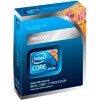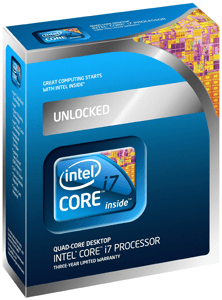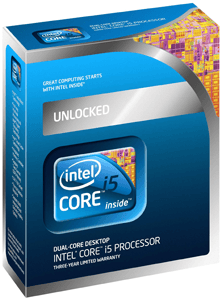- Qualcomm Launches Snapdragon 4 Gen 2 Mobile Platform
- AMD Launches Ryzen PRO 7000 Series Mobile & Desktop Platform
- Intel Launches Sleek Single-Slot Arc Pro A60 Workstation Graphics Card
- NVIDIA Announces Latest Ada Lovelace Additions: GeForce RTX 4060 Ti & RTX 4060
- Maxon Redshift With AMD Radeon GPU Rendering Support Now Available
Intel’s Core i5-655K & i7-875K Unlocked Processors

Most of today’s desktop CPUs, including budget models, tend to be good for overclocking. But for those who are looking for the ultimate in tweaking ability, Intel’s mainstream models have left a bit to be desired. With the K series, though, it aims to remedy that situation by offering unlocked models at affordable prices.
Page 12 – Final Thoughts
Intel’s K processor models are a bit interesting, from a couple of different perspectives. When AMD releases a Black Edition model, it’s clocked higher than other processors in the line-up. So, not only does someone purchase an unlocked CPU, they’re usually getting one of the fastest CPU’s the company offers.
Intel on the other hand has chosen to release K models that share identical specs to another model. So the difference isn’t faster speeds, but far more flexibility, aka: more overclocking freedom. Just how important is that freedom? Well, it depends on just how hardcore of an overclocker you are.
Earlier in the article, I mentioned that Intel hasn’t really had to release such processor models because it already dominates the CPU market from a performance standpoint, and an overclocking standpoint. The truth is, the vast majority of consumers will be pleased with the non-K models, because even those overclock like a dream. That’s been evidenced numerous times before throughout our recent content, with even budget models being able to hit 4.0GHz or higher with relative ease.
Taking away from most of the need for an unlocked processor is that typically, most users can push their CPUs to 4.0GHz speeds and beyond rather easily without stressing their memory or even BCLK all too much. Nowadays, even modest motherboards can handle 200MHz BCLK with relative ease, and at that point, most memory kits will still be well within their specced limits.


It’s for that reason that K models are going to be for those who truly take overclocking seriously, and I assume that’s what Intel’s going for – those who want to break records, and need the flexibility to use whatever RAM kit they have on hand, rather than having to purchase an expensive kit, which at that point could cost more than the processor they’re overclocking with.
Regardless of whether or not K models are for the masses though is unimportant. What is important is the fact that Intel has finally broken its mold and decided to bring non-Extreme Edition unlocked processors to market, which blows the doors open to those who really appreciate overclocking, but are tired of certain limits that Intel’s recent models have imposed.
I’m sure Intel will be releasing more K models in the future, and when it does, there’s little doubt each will hold a fair premium. Whether or not that premium is worth it again boils down to how much you value overclocking. If you’re like me, and simply find a quick overclock and stick with it, then Intel’s standard models are fine. If you’re the type of person who loves tweaking for days to maximize your CPU’s performance, the K models were designed for you.
I couldn’t finish off this article without pointing out that the Core i7-875 currently is priced quite well. The i7-870 has been priced at $562 since its launch, and the i7-875K, despite being the same CPU specs-wise, costs $342.
As mentioned earlier, due to time-constraints, I haven’t been able to tweak and prod these two CPU’s as much as I’d like, so once I return home from Computex, I’ll put them through the ringer again, and if the clocks improve, I’ll update the overclocking page here, along with our related forum thread.
Discuss this article in our forums!
Have a comment you wish to make on this article? Recommendations? Criticism? Feel free to head over to our related thread and put your words to our virtual paper! There is no requirement to register in order to respond to these threads, but it sure doesn’t hurt!
Support our efforts! With ad revenue at an all-time low for written websites, we're relying more than ever on reader support to help us continue putting so much effort into this type of content. You can support us by becoming a Patron, or by using our Amazon shopping affiliate links listed through our articles. Thanks for your support!





